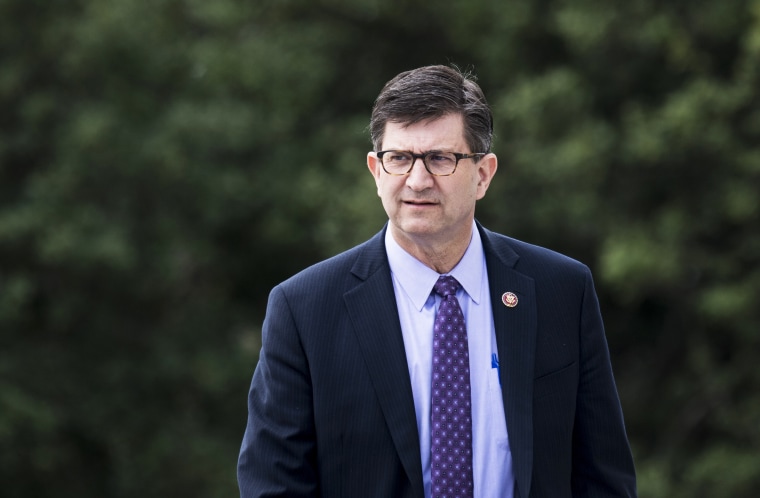No Labels, the group laying the groundwork for a potential bipartisan, third-party presidential ticket in 2024 is facing increasing scrutiny among Democrats on Capitol Hill who are concerned about the potential ticket siphoning votes from President Biden’s re-election campaign and helping lift former President Trump back into the White House.
Thursday on Capitol Hill, Matt Bennett, the executive vice president of public affairs at the centrist Democratic group Third Way, and Rahna Epting, the executive director of the progressive group MoveOn, spoke to “several dozen” House and Senate chiefs of staff in two briefings the groups organized to lay out the potential implications of No Labels’ possible third-party presidential effort, according to Bennett.
“What we told them is what we’re telling you and everyone: This is a dangerous and bad idea, and Democratic officials should be on the record saying it’s a bad and dangerous idea,” Bennet said.
Between the two briefings, No Labels’ national director, former Democratic Rep. Joe Cunningham, sent an email to some of the chiefs of staff in attendance. In it, he said that No Labels is simply providing "another path forward" in case Americans believe another presidential ticket is best to solve the nation's divisions, but also criticized those attempting to stop them.
“Efforts that attempt to slow-walk or block our access from the ballot must be seen for what they are: undemocratic attacks on voting rights and our Constitution,” Cunningham wrote in part in his email, which was obtained by NBC News.
One of the House members most vocal in his rising opposition to the group’s efforts is Illinois Democratic Rep. Brad Schneider. He’s a member of the House Problem Solvers Caucus, a bipartisan coalition of approximately 60 Democrat and Republican House members.

No Labels’ founder and CEO Nancy Jacobson often heralds the Problem Solvers Caucus, which she helped create in 2017. Jacobson specifically highlighted that work during a July interview with NBC News when she was asked why the public should trust the group’s motives.
The caucus initially worked with No Labels, with members regularly joining with the group to tout a bipartisan message. And No Labels recently highlighted the Problem Solvers’ legislative accomplishments in a fundraising email this month.
But Schneider said that since Jacobson began pressing the effort to create a presidential ticket that would rival the Democratic Party, fellow Democratic members of the Problem Solvers Caucus have expressed growing frustrations with the group and, specifically, Jacobson’s frequent references to her past work with them.
Schneider told NBC News that the Problem Solvers Caucus is “an independent entity. No Labels neither speaks for us, nor guides us.”
“There are a lot of frustrations in how No Labels is trying to gain credibility on the backs of Problem Solvers [Caucus],” Schneider said.
“I think the challenge for No Labels is that their credibility is — if not absolutely — very much so dependent on the riding the backs of the Problem Solvers. Problem Solvers doesn’t need No Labels. Our credibility is based on, first, the fact we exist, that we’re working together with Republicans and Democrats sitting in the same room, working on ideas, hearing ideas from the outside world and and trying to develop solutions that address the challenges we face.”
He continued: “It’s clear that Nancy wants to stand on that record, too, with No Labels, but the fact of the matter is [that] they are separate from us and it is a misrepresentation of the reality.”
Another Democratic lawmaker, New Hampshire Rep. Annie Kuster, pushed back against No Labels’ efforts after the briefing as well. Kuster joined the “No Labels Problem Solvers Group,” a precursor to the caucus, in 2013, but is not a member of the Problem Solvers Caucus.
“They are preaching unity, when in fact their agenda is very divisive. And it is going to result in one outcome and that’s the re-election of Donald Trump,” said Kuster. “And you can tell that that’s the intention if you look at their donors and who their donors are and what the goals of their donors are.”
When asked through No Labels to comment about the meetings and the criticism, Cunningham praised the caucus but argued the two are “separate.”
“The Problem Solvers Caucus has done amazing bipartisan work and we applaud it. But No Labels and the Problem Solvers have always been separate entities and we never expected members to support our ballot access efforts,” he said.
“No Labels is listening to the clear demand the American public has for better choices in 2024, and we think members will hear the exact same thing when they go back to their districts in August.”
CORRECTION (July 29, 2023, 1:25 p.m.): A previous version of this article identified New Hampshire Democratic Rep. Annie Kuster as a member of the Problem Solvers Caucus. While she joined a precursor to the caucus in 2013, she is not a member of the caucus now.

